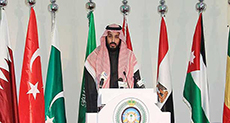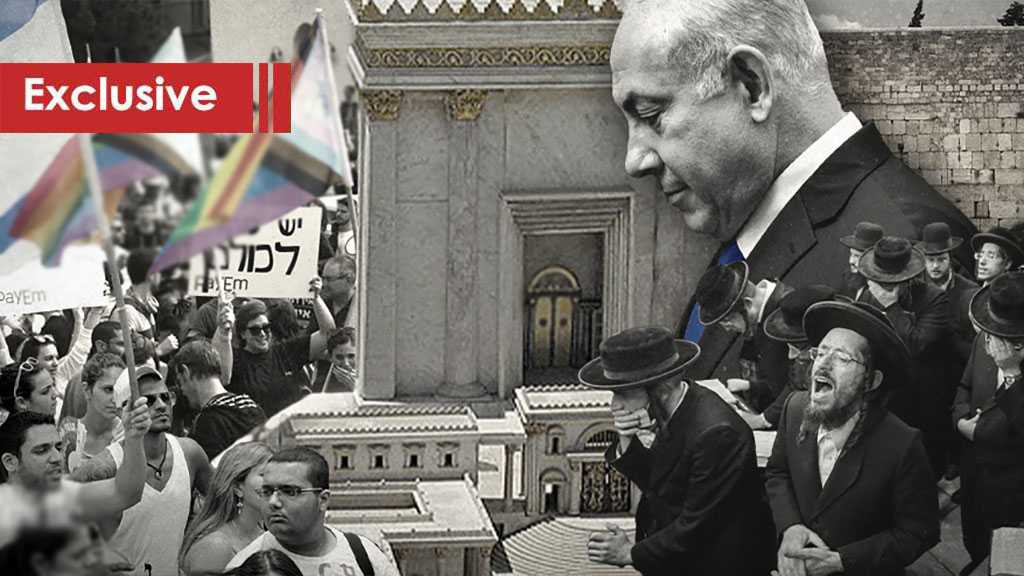The Not So Islamic Alliance!

Darko Lazar
Saudi Arabia's announcement that it was forming a new ‘Islamic military alliance' to fight global terrorism is a joke that needs no punch line.
The news left many scratching their heads, and not just because Riyadh's support for militant groups in Iraq and Syria is known to have given rise to the bloodiest wave of terror in Middle Eastern history.
The new 34-member alliance includes countries from across the Middle East, Africa and Asia, complete with a Riyadh-based operations command center.
But some of those countries that the Saudis have declared as members of the alliance have never even heard of it.
Pakistan's Dawn news outlet quoted the country's foreign secretary as saying that he "was surprised to read the news that Saudi Arabia had named Pakistan as part of the alliance".
Riyadh has made a habit out of naming Pakistan as a member of its military alliances without Islamabad's consent. Earlier this year, the KSA included Pakistan in a list of countries that were allegedly part of the Saudi-led coalition in Yemen. The Pakistani government later refuted that claim, refusing to take part in the bombing campaign that has claimed over 7,000 lives since late March.
Malaysia also denied that it had a role in the alliance.
And in Lebanon, another listed member, the announcement caused rifts in the government, with the country's Foreign Ministry denying it would ever join such a coalition.
The African members did not have much to say. Perhaps some of them were confused about why they were being included in an ‘Islamic alliance' despite the fact that they are not Muslim-majority countries. In Uganda and Gabon, for instance, over seventy-five percent of the population is Christian.
However, unlike the slogan of Riyadh's hastily declared alliance, its unstated objective is no laughing matter.
Under last year's legislation passed in the Kingdom, virtually any criticism of the monarchy's political system or its interpretation of Islam counts as terrorism.
And while the official function of this alliance is still very vague, Saudi officials have vowed to go after terrorism in general.
This could very well rule out Daesh as the alliance's primary target. The terror group's ideology stems from Wahhabism, which drives extremism around the world and is the Kingdom's dominant religion.
Instead, the Saudi alliance is likely to be used to promote Riyadh's regional sectarian agenda aimed at undermining Iran.
The countries excluded from the alliance's list of member states perhaps best demonstrate this.
Iran, Iraq and Syria, the region's largest Muslim countries, are at the forefront of the fight against terrorism and are all part of the ‘4+1' coalition, which includes Russia and Lebanon's Hizbullah.
A member of Iraq's ruling State of Law Coalition, Bassem Abu Tabikh, whose home country houses the headquarters of the ‘4+1' alliance, thinks the Saudis have no intention of fighting terrorism.
"This coalition comes after all other means failed to divide the region. It aims to get rid of resistance groups such as Hizbullah and the Popular Mobilization Units in Iraq, which are getting in the way of Saudi Arabia's scheme. If it were an alliance against Daesh, why aren't Iraq, Iran and Syria included?" Abu Tabikh said.
So when the Saudi foreign minister says, "nothing is off the table," he means exactly that.
According to Adel al-Jubeir, "There are discussions [among] countries that are currently part of the coalition... about sending in some special forces into Syria."
This would explain why Washington and Ankara are thrilled.
Saudi Arabia's key allies have of course welcomed Riyadh's announcement.
The Americans, whose own ‘anti-terrorist' coalition has been simulating the fight against Daesh for over a year, will be hoping to see the new Saudi-led initiative undermine the ‘4+1' alliance that is the only one actually fighting terrorism.
But even in the theater of the absurd, where the threat of groups like Daesh comes second to regime change in Syria and where sloppy announcements of so-called coalitions are increasingly beginning to resemble those leading up to World War I, there appears to be a lack of appetite for Riyadh's latest concoction.
Source: al-Ahed News




